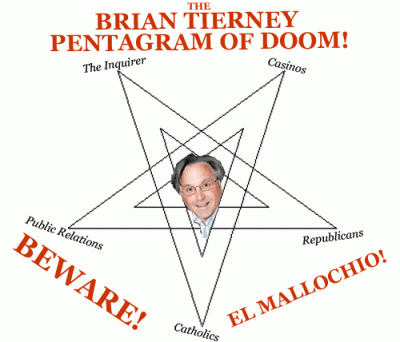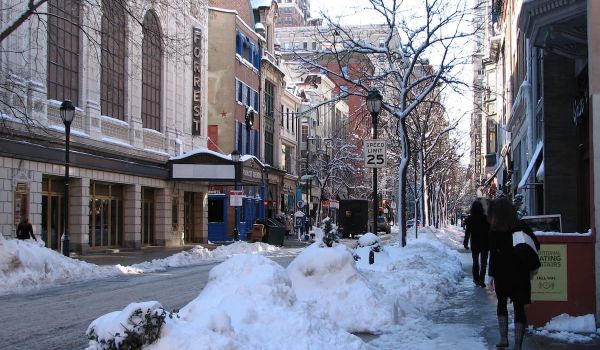Just yesterday the New York Times Magazine published a piece called “What’s a Big City Without a Newspaper?” Unfortunately, the piece doesn’t quite answer that question. Michael Sokolove, a native Philadelphian, returns to Philly with the express desire to figure out what’s going on with the bankrupt Daily News and Philadelphia Inquirer. Sokolove makes the strange decision of siding with the demi-villain Brian Tierney, who owns both the papers, in order to look at the newspapers’ financial situation.

Graphic courtesy of Philebrity. The image is meant to express the popular reception of Tierney, not Next American City‘s opinions.
While the piece covers some interesting aspects of the Philadelphia journalism scene, namely the enterprising Notebook and an inside peek at the Pew Charitable Trust’s raison-de-giving, it doesn’t actually ask what will happen to this “big city” when the Inquirer and the Daily News eventually die.
If I sound crabby about this story, it’s because I’ve penned a very short piece called “Out of Print” for the next issue of Next American City and I feel a little like Sokolove got there first. But my article is a messy attempt to actually answer the question of what would happen to a city like Philly once its papers died off — not to examine what a newspaper on life-support looks like. My piece is meant to be a little more philosophical and draw some conclusions. For example. that newspapers aren’t that great at preventing corruption; they are good at transferring ideas between the government and the people, in developing a collective conscious and in creating a historical record of a city that is useful for historians, planners and regular folks alike.
What didn’t make it in to the piece is another conclusion: I think that when old newspapers die off, other upstart papers will have the chance to flourish. A recent New York Times article shows that since the Seattle Post-Intelligencer went from print to online-only, Seattle’s only other newspaper, the Seattle Times, has seen its circulation rise by 30 percent and is now operating in the black. I don’t doubt that with that increased circulation and advertising revenue, the Times will become a stronger newspaper — and add a chapter in the continuing saga about what will become of the newspaper industry.
Sometimes I think that if the Inquirer and the Daily News both died, Philadelphia would not become a no-newspaper town, but rather it would attract a number of go-getters ready to start a new paper and profit off it. The lethargic nature of Philadelphia’s two newspapers and the two weeklies seems to mimic the can’t-do ethos that occasionally afflicts this city. It’s time for a change in Philadelphia’s print media, in terms of tone and content — that’s just my opinion. What’s yours?

Diana Lind is the former executive director and editor in chief of Next City.















